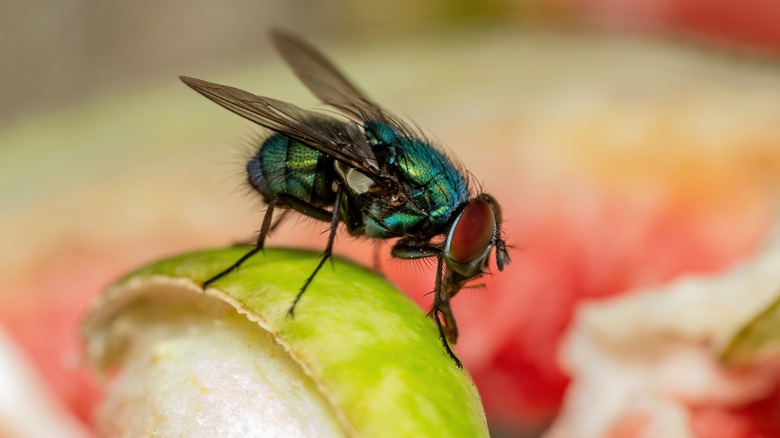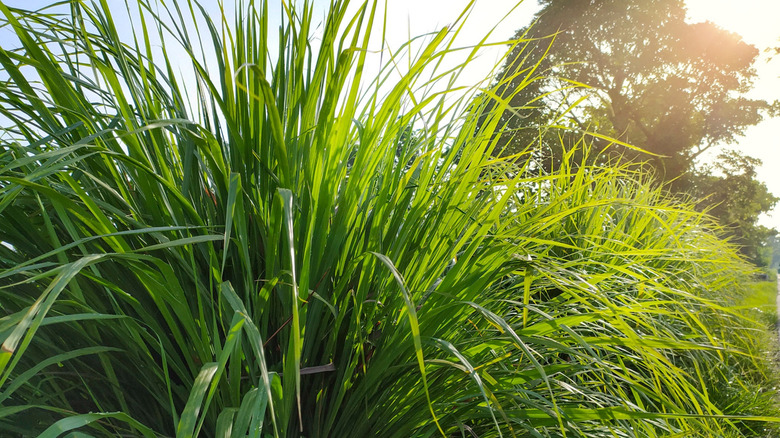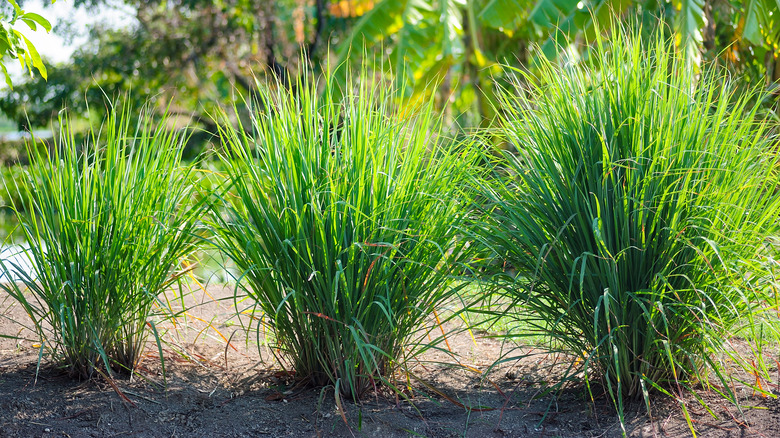The Ornamental Grass That Will Send Flies Buzzing Away From Your Backyard
Lemongrass is a popular perennial ornamental grass native to India, Sri Lanka, Burma, and parts of Thailand that can also be found in other tropical regions. In the United States, it is mostly found in USDA zones 9 and 10 where it grows in green clumps, though it can also be grown as an annual in cooler regions. It can be identified by its long and thin yellow-green grass blades with sharp edges and a distinct citrus smell when crushed. It occasionally produces a stalk with small white or yellow flowers.
Pests are naturally repelled by lemongrass (Cymbopogon spp.) because it contains citronella, which is an essential oil that produces a strong citrus odor that pests can't tolerate. Although there are other aromatic plants and herbs that repel flies and other pests from your home like sage, catnip, mint, and marigolds, lemongrass has been said to be the easiest to grow and maintain. Incorporating lemongrass into your pest control plan will go a long way in reducing the number of flies and mosquitoes that swarm your yard over time, ultimately protecting everything else that grows in it.
How lemongrass can be used to repel flies
In addition to flies, lemongrass has also been found to be effective in helping to repel other pests that could be invading your home, such as mosquitoes. The strong citrus smell overwhelms the mosquitoes' senses, making it difficult to find their prey. With no way to track you down, they're likely to move elsewhere. Lemongrass also has a similar effect on ants as it disrupts their senses from their natural pheromones, making it difficult for them to find their way back to their colony or food sources.
Planting lemongrass plants around your home or in containers near entrances and patios will go a long way in helping to keep these uninvited guests from invading your space. They will avoid that sharp citrus scent and the citronella at all costs. Over time, those annoying flies and mosquitoes will frequent your backyard less and less.
Precautions to take when using lemongrass
Just like the citronella in lemongrass is harmful to the respiratory systems of flying and crawling insects, it can also be toxic to the pets in your home. The American Society for the Prevention of Cruelty to Animals does not recommend the use of citronella in the home if cats and dogs are present. Lemongrass is toxic to cats and dogs and can cause an upset stomach and difficulty breathing. Horses also can't tolerate the smell of citronella in lemongrass, causing difficulty breathing and, in rare cases, even death. If you must use lemongrass around your home, be sure it is out of reach for your pets.
If you're planning to plant lemongrass in your garden, there are also a few things to consider. While lemongrass may be native to tropical regions, it can be invasive in other areas. Despite it being considered invasive, the small flowers don't carry seeds that can cause the plant to spread all over your yard. Even though some non-native species may have attractive properties, you must never plant invasive plants in your garden because they threaten the health of your ecosystem. It is often better to grow lemongrass indoors or in a container where it won't interfere with the soil or cause harm to other plants around it.


